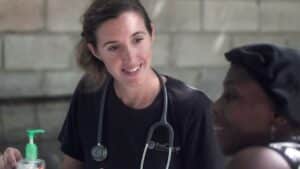Choosing the right treatment for addiction or mental health challenges can feel overwhelming. You want to make the best choice for long-term recovery, but it’s hard to know what each option involves. Inpatient rehab is one option that offers more intensive care.
This post will walk you through how inpatient rehab works and what you can expect. Whether you’re looking for yourself or someone else, this information will help you make an informed decision.
What is Inpatient Rehab?
Inpatient rehab is a residential program where individuals stay at a facility while they receive treatment. Unlike outpatient care, which allows you to come and go, inpatient rehab offers around-the-clock support, making it ideal for those who need more structure. It removes distractions and triggers, giving you the space to focus on recovery.
How Does Inpatient Rehab Work?
Each step of inpatient rehab is meant to guide you through healing and prepare you for life after rehab. Let’s walk through the main touchpoints of the process so you know what to expect.
Admissions
The process starts with an initial phone call to the facility. They’ll ask for some basic information to better understand your situation — things like your medical history, the reason you’re seeking treatment, insurance, etc. This helps them prepare for your arrival and ensures you get the right support from the start.
Assessment and Intake
Once you arrive, you’ll undergo an assessment that includes a physical checkup and a psychological evaluation. Your care team will review your personal history to better understand your needs and ensure that your treatment plan is personalized and effective.
Review of Treatment Plan
After the assessment, the care team will review your treatment plan with you. This plan outlines your goals, the therapies you’ll participate in, and the outcomes you can expect. Some facilities might provide a written plan, while others might review it with you during regular check-ins. Either way, you’ll have a good idea of what’s coming up and can see how the plan evolves as you progress.
Family Involvement
Family involvement can be a big part of inpatient rehab, especially when relationships have been affected by addiction or mental health struggles. Having family members (or other close loved ones) involved can help create a stronger support system, both during rehab and after you leave.
Many programs offer family therapy sessions, where loved ones can come in and be part of the healing process. These sessions focus on rebuilding trust, improving communication, and helping everyone understand how to move forward with a healthier family dynamic. They’ll also learn how to better understand addiction or mental health challenges, which helps create lasting support after rehab.
Aftercare Planning
Even though inpatient rehab is a significant step in recovery, it’s not the last one. Aftercare planning helps you transition back into your daily life with a solid plan to stay on track. Your care team will work with you to develop a personalized aftercare plan, including ongoing therapy, support groups, or outpatient programs.
What to Expect in Inpatient Rehab
One of the biggest questions people have about inpatient rehab is what the day-to-day experience will be like. Here’s an idea of what you can expect to do (and feel) during inpatient rehab.
Therapy and Counseling
Therapy provides a space to dig deeper into the emotional and psychological challenges that may be driving addiction or mental health issues. It allows you to process your experiences in a healthier way and gain a better sense of self-understanding. You’ll receive ongoing guidance toward healthier ways of thinking and coping with triggers.
Types of Therapy
- Individual Therapy: One-on-one therapy sessions to work through personal challenges.
- Group Therapy: Sessions with peers to share experiences, build support, and learn from others.
- Family Therapy: Where appropriate, families may be involved to address relationship dynamics.
Daily Routine
Part of recovery is learning how to add structure to your life. In treatment, you’ll follow a set daily routine to help you do so. Here’s an example of a daily routine:
- 6:30 AM – Wake Up: Start the day with personal hygiene and preparation.
- 7:00 AM – Breakfast: Eat a nutritious meal to fuel the day.
- 8:00 AM – Morning Meditation: Participate in guided mindfulness or yoga to reduce stress.
- 9:00 AM – Group Therapy: Share experiences and learn from peers in a supportive group setting.
- 11:00 AM – Educational Workshop: Attend sessions focused on addiction education or life skills.
- 12:00 PM – Lunch: Take a break to enjoy a healthy meal.
- 1:00 PM – Individual Therapy: Engage in one-on-one therapy with a licensed therapist.
- 2:30 PM – Fitness or Recreation: Participate in physical activities like walking or sports.
- 4:00 PM – Holistic Therapy: Explore creative therapies such as art or music therapy.
- 5:30 PM – Dinner: Eat a balanced dinner to nourish the body.
- 6:30 PM – Evening Group Therapy: Join a group session to discuss recovery progress.
- 8:00 PM – Reflection or Journaling: Spend time reflecting on the day’s experiences.
- 9:00 PM – Free Time: Relax or engage in quiet activities before bed.
- 10:00 PM – Lights Out: Follow a consistent sleep schedule for rest and recovery.
Skill-Building
Skill-building sessions give patients new tools to handle life’s pressures once they leave the program. These skills include:
- Emotional regulation: Learning how to manage intense emotions in healthy ways.
- Stress management: Developing techniques to cope with daily pressures without resorting to harmful behaviors.
- Coping strategies: Building personalized tools to handle triggers and challenges effectively.
- Decision-making: Strengthening the ability to make thoughtful, positive choices.
- Communication skills: Improving how to express needs and feelings more clearly and effectively.
- Boundary-setting: Learning to set healthy limits in relationships and life situations.
- Relapse prevention: Gaining strategies to prevent falling back into old, harmful patterns.
Healing and Growth
All of these elements work together to create space for deep healing and personal growth. The combination of therapeutic support and practical skill-building helps individuals gain clarity and regain control over their lives. It’s about breaking harmful patterns and replacing them with new, positive ones.
Get Help for Addiction and Mental Health
Recovery from addiction or managing mental health challenges can feel overwhelming, but you don’t have to face it alone. At Northpoint Colorado, we offer comprehensive addiction and mental health treatments to help you regain control of your life.
Our team will tailor a plan specifically for your needs, providing you with the care, tools, and guidance you need to heal and thrive.
Contact us today to learn more about our personalized treatment options and how we can support you on your journey to recovery.




